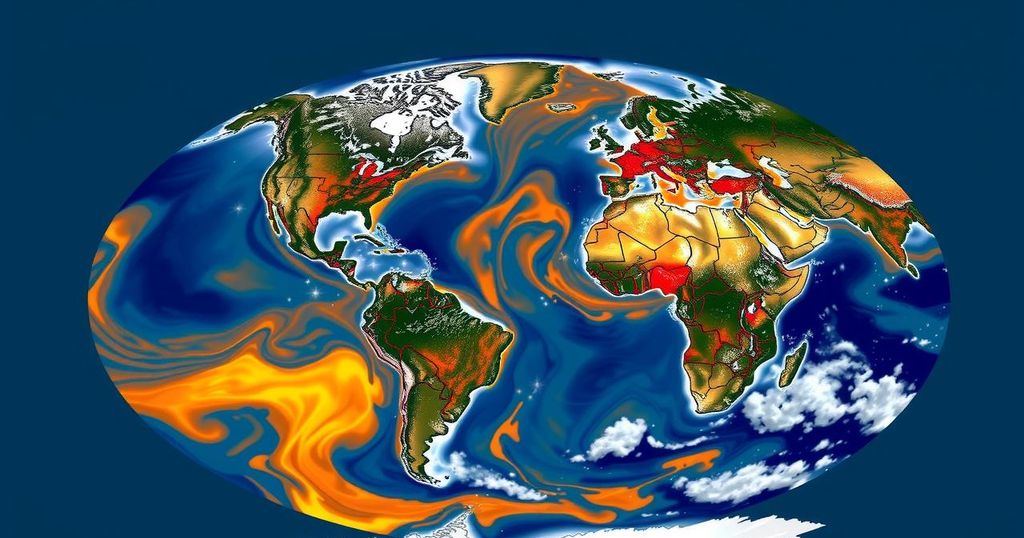Week in Review: Key Climate Developments from October 14-18, 2024

This week reveals alarming updates regarding climate change, including inadequate ocean protection, politicization of disaster aid, severe weather events linked to climate change, tech advancements in nuclear energy, emotional responses from climate scientists, and distress among US youth about environmental issues, suggesting critical challenges necessitating prompt actions for mitigation and adaptation.
This week presents pressing updates surrounding climate change, featuring concerns about ocean protection, political issues regarding disaster aid, extreme weather events linked to climate change, advances in nuclear energy by tech corporations, emotional reactions to climate change, and surveys reflecting youth anxiety regarding climate issues. Firstly, a recent report highlights that only 2.8% of the world’s oceans are effectively protected, far from the 30% goal set by UN initiatives for 2030. Governments globally are lagging in their conservation commitments stipulated under the Kunming-Montreal Global Biodiversity Framework, posing significant risks to marine biodiversity. Secondly, political dynamics have emerged regarding disaster responses under former President Trump, particularly how aid was selectively given during natural disasters that impacted states with Democratic leadership, raising concerns about political motivations in emergency responses. In another report, deadly floods in Nepal have been linked to climate change and rapid urbanization, with significant findings of increased rainfall intensity attributed to global warming. This analysis underscores the urgent need for climate action to mitigate severe weather impacts. Google has made a groundbreaking move by ordering the construction of small modular nuclear reactors to power its data centers, aiming for a substantial reduction in carbon emissions. This is a noteworthy collaboration between the tech sector and nuclear energy development as it strives to tackle increasing energy demands arising from digital operations. Furthermore, a US meteorologist’s emotional broadcast discussing Hurricane Milton emphasizes the frustration felt about the inadequate measures taken against climate change, reflecting a broader sentiment of despair regarding climate inaction. Finally, a survey involving nearly 16,000 young individuals across the United States reveals high levels of anxiety about climate change, irrespective of political affiliation. The findings indicate a substantial percentage of youth experience mental health effects due to climate-related concerns, showcasing the profound impact climate change has on the younger generation’s psyche.
The articles compiled in this weekly review shed light on critical climate-related updates that not only highlight ongoing environmental challenges but also reveal the intersection of politics and natural disasters, the increasing severity of weather events due to climate change, and technological responses like nuclear energy as a solution to energy demands. More significantly, they reflect on the psychological impacts of climate change on youth, a group increasingly engaged in climate activism and concerned about their future. These issues underscore the paramount importance of cooperative actions at both national and international levels in addressing climate change effectively.
In conclusion, the topics covered this week indicate a concerning trend in the effectiveness of global ocean conservation efforts, politically motivated disaster fund allocation, rising incidences of extreme weather due to climate change, innovative energy solutions from tech giants, emotional distress among scientists advocating for climate action, and widespread anxiety among the youth. These multifaceted challenges highlight the urgent need for comprehensive strategies that encompass environmental protection, equitable policy-making, and sustainable energy practices, underscoring that immediate action is critical to securing a safer and more sustainable future for the planet.
Original Source: earth.org






